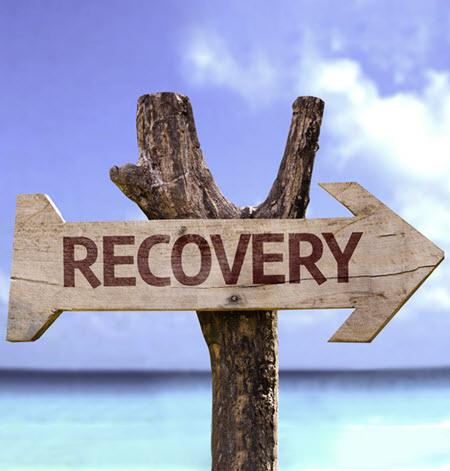“Our job is not to deny the story, but to defy the ending – to rise strong,
recognize our story, and rumble with the truth until we get to a place where we think, Yes.
This is what happened. This is my truth. And I will choose how the story ends.”
– Brené Brown
 Emotional instability robs children of their childhood.
Emotional instability robs children of their childhood.
Maybe, the damage was intentional – a parent, a family member, or another adult in your life physically and emotionally abused you. Or your parents did not know the pain they were causing their children.
Your parents may have been depressed and anxious themselves, so they could not be present for you growing up.
Perhaps, your parents separated or divorced and were too caught up in their drama to understand how their actions were hurting you.
Or the responsibilities of being a single parent did not allow them the time and space to provide support for their emotional well-being.
Immature behavior by adults affects their children.
Maybe your parent overused drugs or alcohol, leading to a childhood that did not feel safe. Or they were always angry or focused too much on themselves to pay attention to your needs.
You had to walk on eggshells around your parents, or you had to take care of them – maybe because of their issues, they could not take care of you, resulting in other people raising you. Perhaps you had to raise yourself… and your siblings.
Growing up in an unsafe neighborhood where you witnessed violence or suffering from a serious illness or hospitalization can also lead to trauma.
You also may have made choices as a child or adolescent that led to regret and shame.
 Therapy for Trauma Recovery – A metaphor.
Therapy for Trauma Recovery – A metaphor.
Let’s take a lesson from the Japanese art of Kintsugi.
Kintsugi means “to repair with gold” and represents the art of repairing pottery with gold or silver lacquer and understanding that the piece is more beautiful for having been broken.
Like the beauty of broken pottery made to be whole again, therapy for trauma recovery can help transform your wounds into something even more beautiful.
How does trauma recovery look?
First, you will understand what needs healing. Then, together we will see how your past shaped you in ways large and small and how it affects your adult life.
We will piece together your story so that it makes sense, recognizing that making sense is the beginning.
Second, you will learn to honor your younger self. Anything that is “wrong” with you began as a survival mechanism in childhood and adolescence.
What may appear as traits with which you were born are coping skills you needed when you were a child, and they served you well.
Survival mechanisms learned in childhood affect our lives as adults.
As an adult, you may push away or deny your feelings, try not to draw attention to yourself, not allow yourself to speak your mind, try to be pleasing to others despite your needs, and try to read others so that you know how to act or behave.
As adults, the skills that helped us cope with our environment do not work so well.
Trauma leads to anxiety and depression, low self-esteem, affecting your relationships, and inability to cope during life transitions.
 Healing means gaining control of YOUR emotions.
Healing means gaining control of YOUR emotions.
Our focus is on your healing. Because what happened to you is unique, our recovery treatment is personalized to address your specific needs.
Healing requires an understanding of your emotions. If you grew up being shamed or made fun of for showing emotions or were told that your feelings didn’t matter, it might be difficult for you to name your feelings.
Self-blame or self-criticism is very strong in adults that grew up with trauma, primarily when often blamed for things that were out of their control. Healing means that when things go wrong, you will not automatically blame yourself.
While growing up, it was easier to avoid speaking the truth, so you didn’t suffer the consequences of being a scary adult. But as you heal, you no longer fear confrontation.
Healing means gaining self-confidence.
Self-confidence will grow! No more thoughts challenging your every decision, causing you to wonder if you ever do anything right. You will no longer second guess yourself or overthink.
As a child, you may have hidden from your parents or caretakers for fear of their anger. Healing means being able to speak up without worrying and no longer being afraid of voicing your thoughts and feelings.
Rather than focusing on pleasing others, healing means you can voice your opinions and find your voice rather than stay quiet as your parents wanted.
Healing means being less sensitive to rejection and the fear of being left behind.
 The ability to cope is a sign of healing.
The ability to cope is a sign of healing.
You will know your triggers and how to cope with them. And because of this shift in your behavior, you will find those with whom you can genuinely connect.
Triggers will no longer control you – what set you off in the past, hurt, or caused you to act in ways that robbed you of your pride will no longer have power over you.
You will know how to set boundaries and respect those of others.
You will no longer fear saying no without an explanation, and you will feel the same way when others say no. In turn, you will connect to others in healthier ways.
 Growth comes with healing.
Growth comes with healing.
You will be proud of your progress and see setbacks as opportunities for growth.
The ability to recognize what you’re doing well rather than focusing on what you are doing wrong is a significant sign of healing. In addition, you will practice self-compassion rather than beating up yourself when things do not work out.
Growing beyond trauma means that you will see yourself entirely rather than through the lens of trauma. A healthier lens means that you will see both your strengths and positive attributes while recognizing areas where you may need to grow, rather than feeling unworthy or lacking in ability.
You will grow beyond being weighed down by shame. You will come into your own more and more and begin to own your story, all parts of it.
You will set personal goals on your own and no longer feel powerless. Therapy for trauma recovery will allow you to gain control of your life and decisions about your future.
“As traumatized children, we always dreamed that someone would come and save us.
We never dreamed that it would, in fact, be ourselves, as adults.”
– Alice Little
Healing must be intentional.
I present you with a choice to grow or remain the same.
Although it may sound like a harsh truth, it’s a call to fight for yourself – There is no magical day that will come and save you from your struggles. Healing is possible, but only you can decide that it’s what you want to do.
If you choose to evolve, you will look back and see how far you have come one day. You will connect to the strength and resilience within you and know what feeling connected to yourself means.
Therapy for Trauma Recovery with Healing Blue, Inc.
Choose yourself, choose to evolve, choose to heal.
Contact us today. You can call or text 818.945.9075 for a free 20-minute consultation – or – use the form below.


 818.945.9075
818.945.9075